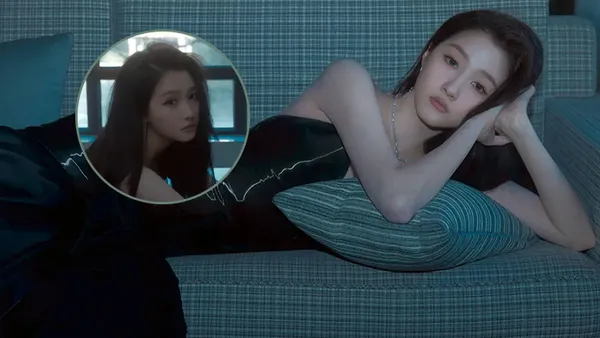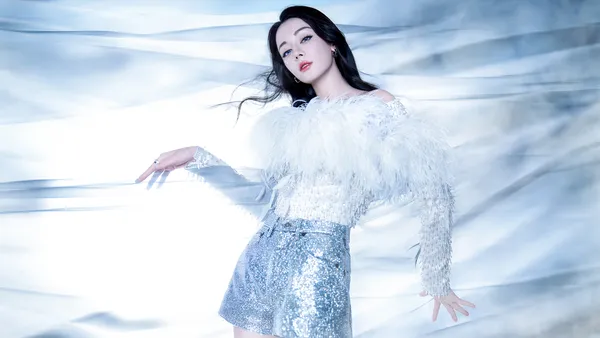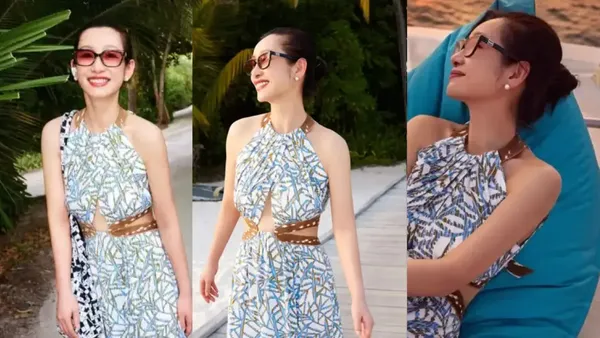A letter from a strange man, Wang Danni's new drama "Coolie" falls in love with Zhang Xiaoquan internationally
![_ 20240625084733.jpg] (https://imgs.the9c.com/2024/0625/2979a2d854aec3625edd2cf0858fc60d.jpg) Shanghai, June 24, the opening day of the 29th Shanghai Television Festival, the TV...
![_ 20240625084733.jpg] (https://imgs.the9c.com/2024/0625/2979a2d854aec3625edd2cf0858fc60d.jpg)
Shanghai, June 24, the opening day of the 29th Shanghai Television Festival, the TV series "coolies" held a media meeting in Shanghai and released its first global trailer to borrow a letter to tell a love story. Since then, the neglected Chinese labor history in Cuba in the 19th century has slowly unfolded, "telling the world the story of Chinese coolies." Producer Zhu Meilian and director Chen Junlin, together with actors Zhang Xiaoquan, Wang Dani and Bao Qijing, shared the behind-the-scenes stories of "coolie" in the shooting and production process through video. And starring Wang Danni is surprised to appear at the scene, face-to-face interaction with the media.
Based on the history of Chinese going to Cuba as coolies in the 1860s, the eight-episode TV series coolies tells the love story of a Chinese girl who goes to Cuba to pay her family debts. The series, produced by Cathay Pacific Film Company, is original by veteran filmmaker Zhu Meilian, supervised by Korean producer Li Rener, directed by Chinese Taiwan director Chen Junlin, and starred by Chinese Taiwan actor Zhang Xiaoquan, Chinese Hong Kong actress Wang Dani and Colombian famous actor and TV celebrity Mario Enao.
The theme is scarce and it takes 30 years to make up for the gap.
"the history of overseas Chinese is an integral part of Chinese history." Chinese are the largest group of immigrants in the world. More than 2000 years ago, Chinese people came to Southeast Asia to do business through the Maritime Silk Road. Large-scale Chinese immigrants were from the mid-19th century to the 1940s, when China, which was weak and poor, forced many people to leave their homes to work as labourers in western countries and their colonies, that is, the so-called "coolies". From then on, the Chinese began to go out to the world. Among them, it is estimated that more than 130000 Chinese coolies arrived in Cuba between 1847 and 1860.
![_ 20240625084715.jpg] (https://imgs.the9c.com/2024/0625/ce77f986c81c80a7a24f4b1cc4b4b899.jpg)
Although the footprints of Chinese coolies are all over the world, the stories about them are relatively rare in film and television, which has become a major gap in Chinese narrative. The birth of "coolies" is making up for this gap. It is reported that "coolies" not only gives the audience a deeper understanding of the stories of overseas Chinese workers, but also makes the audience feel their firm faith and indomitable spirit.
Zhu Meilian said that "coolies" was written by her more than 30 years ago. "I have always been interested in the history of Chinese immigrants, and I am also a descendant of a poor Chinese immigrant." Speaking of her original intention, Zhu Meilian said frankly that people only knew about slavery in Africa, but no one knew about building railways in California and mining tin mines in Malaysia and Bolivia. Chinese slaves who worked in sugar cane fields in Cuba, the Dominican Republic and Jamaica and built the Panama Canal.
Zhang Xiaoquan, who plays the leading actor Li Tonghe, said that before he read the script, he did not know that the Chinese had had such a historical process, and it seemed that the story had been "impacted." through coolies, we can see the great contribution of Chinese workers in the process of global history, a history that should not be forgotten.
Female strength, resilience through different times
Coolie chooses female stories from Chinese coolies as an incision to tell. The hostess Zhu Lin (Wang Danni is acted the role of) is a poor orphan, she is betrothed to Tonghe (Zhang Xiaoquan is acted the role of) as the bride of the city, Zhu Lin has experienced the ups and downs of life, continues to grow, and finally controls her own life.
Zhu Meilian said that as descendants of overseas Chinese, her great-grandmother, grandmother and mother are all independent women who have shown admirable tenacity and courage in their respective lives. This family spirit deeply influenced Zhu Meilian and provided a steady stream of inspiration for the creation of coolies. "I come from a family full of powerful women-my great-grandmother, grandmother and mother are all very independent and strong in their respective lives. So I created this story based on them."
![_ 20240625084750.jpg] (https://imgs.the9c.com/2024/0625/b80ec1805fc342375f337264c2422d03.jpg)
Wang Danni, who plays the heroine Zhu Lin, said that Zhu Lin is a very kind and brave woman. Zhu Lin's story also gives her a lot of courage to face the challenge and explore the unknown new world. Zhu Lin's story is not only an inheritance of women's independent spirit, but also a praise and eulogy of women's power.
Bao Qijing, who plays Zhu Lin's grandmother, said that her grandmother completely passed on her skills in traditional Chinese medicine to her granddaughter. She was a very characteristic woman and had a great impact on Zhu Lin's development in South America.
In addition, although the coolie tells the story of more than 200 years ago, it is of great practical significance. The playwright believes that the various challenges faced by coolies are the portrayal of the reality experienced by people in today's society. Both the Chinese coolies who were in Cuba in the past and the modern people in the 21st century are facing the test of adapting to the environment, integrating into society and coping with changes. The resilience shown in them has become a bridge between the two ages.
International masterpiece, playing the symphony of Chinese and Western cultures
It can be seen from the trailer that Chinese traditional cultural elements such as lion dance, kung fu and traditional Chinese medicine have been skillfully integrated into the plot, making this film not only a reappearance of history, but also an international display of Chinese culture.
In order to accurately restore the historical features of Cuba in the 1860s and show the fierce collision and fusion between different cultures, the crew of "coolies" traveled thousands of miles to Dominica and Panama to shoot on the spot. On the set in Panama, the crew showed amazing creativity, carefully decorating the abandoned building at 1:1 to restore the scene of the Chinese Lunar New year.
Zhu Meilian praised the set designers of the crew, praising them as "real wizards" who could recreate the charm of Chinese culture in a foreign country.
Director Chen Junlin said that the most fun and challenging part of "coolie" shooting was to "restore that era, the Cuba of the 1860s," including the restoration of old buildings.
Zhang Xiaoquan said that the story in the film deeply depicts the interweaving of Eastern and Western cultures at this historical node in Cuba, and whether it is adjustment or collision, it ultimately reflects a kind of cultural inclusiveness, which is also an important message that "coolies" want to convey to the audience.
In addition to cross-border shooting, the creative team of "coolie" is also fully internationalized. Chen Chun-Lin, a Taiwanese director, has previously directed works that have appeared at the Berlin International Film Festival many times. Coolie is his second collaboration with Chu Meilian after the film "one Page of Taipei." Starring Zhang Xiaoquan, an actor from Taiwan, he has worked with Chen Junlin many times and is very popular with the audience for his films "girlfriend and boyfriend" and "the five years when they were stolen". Wang Dani won the Best New Actor Award at the 40th Hong Kong Film Awards for her film Anita Mui and was nominated for Best Actress at the 35th China Film Golden Rooster Awards. In addition, the show also brings together multi-national filmmakers from Colombia, Cuba, Singapore, Dominica, the United Kingdom, the United States and so on, making Wang Danni lamented that she is "the most international team she has ever worked with."
There is a stone tablet inscribed in Havana, Cuba: "No Chinese Cuban is a deserter, no Chinese Cuban is a traitor." The story of the TV series "coolies" attracted wide attention as early as the beginning of filming, and now it is about to meet with the audience. Let us look forward to the blooming of "coolies" on the international stage.
 白羊座
白羊座 金牛座
金牛座 双子座
双子座 巨蟹座
巨蟹座 狮子座
狮子座 处女座
处女座 天秤座
天秤座 天蝎座
天蝎座 射手座
射手座 摩羯座
摩羯座 水瓶座
水瓶座 双鱼座
双鱼座










